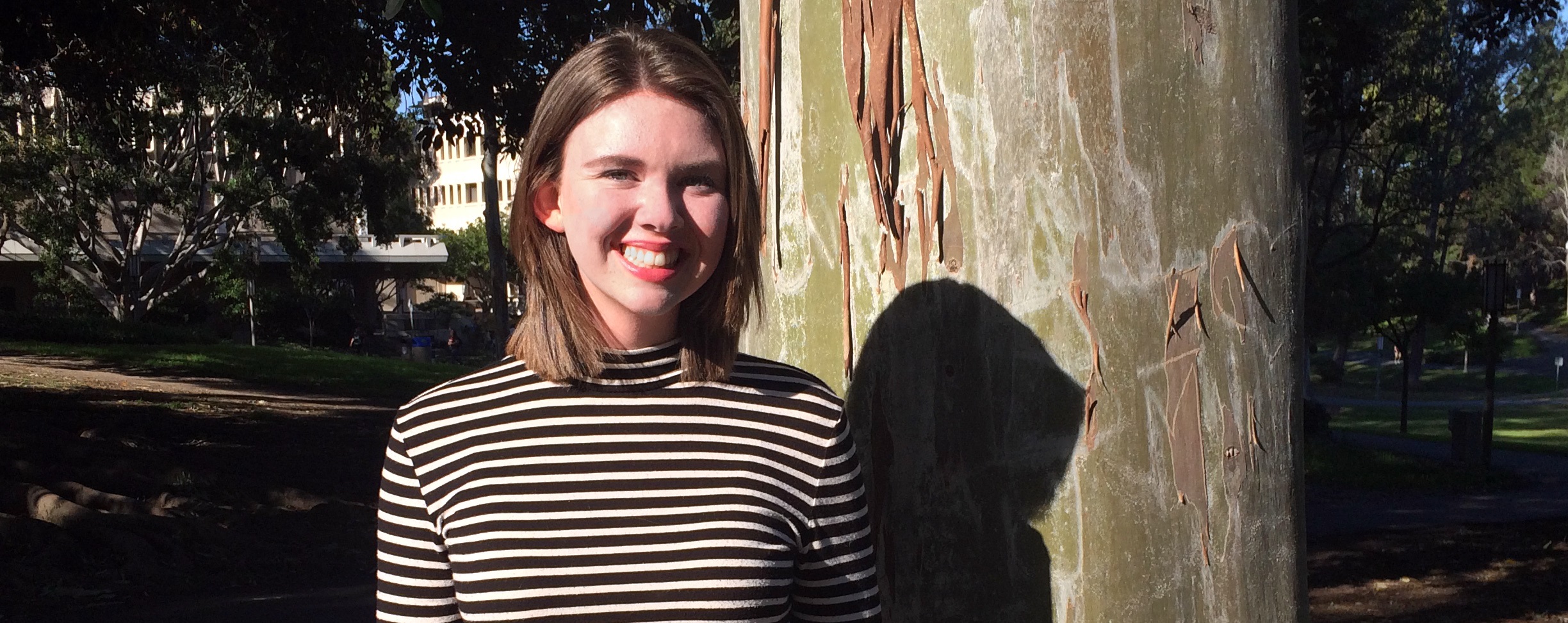 What would you say is the best reason to major in English?
What would you say is the best reason to major in English?
By far the best reason to be an English major is that it teaches you to close read. In the E28 series, I learned to close read and I started to really analyze what people say to me, my own internal monologue, and how I was approaching the world. Because the world is constituted by language, once you can close read, things make more sense.
What has been the biggest surprise to you studying English at UCI?
You tell people you're an English major and people assume it's easy, but people who actually know what it means to study English realize how it difficult it is. Realizing that I could really do it and that I could generate the amount of writing required was a surprise. I wrote seventy-five pages last quarter! You also feel so productive because you're writing so much, creating something that is your own, and developing your own ideas. My ideas finally meant something because they were my own and that was mind-blowing to me. Being an English major allowed me to have time to develop my own, original ideas. We're really encouraged to develop unique arguments (rather than to just repeat a teacher's idea or give the teacher what he/she wants to hear) and that was eye-opening to me and allowed me to develop my critical thinking skills.
Tell us about a piece of your own writing here at UCI that you're most proud of and/or which you learned from the most.
I wrote a paper about Lacan's "mirror stage" compared it to A Room of One's Own - the passage about women reflecting men at twice their size - about reflection and identity formation. I wrote it in my literary theory class and it was my first opportunity to apply theory to a literary text. Previously, I had learned theory without an object to apply it to, so this was an opportunity to use a theoretical lens.
What book, poem or author that you read here at UCI has most excited you, and why?
The Sound and the Fury which I read last quarter with Prof. Godden; I remember reading the first section and had no idea what was going on until I heard a lecture on it and then had the opportunity to choose something to write. I used the idea of "performative utterances" in talking about Quentin. Initially, I didn't understand what was going on, but once I got to write about it I realized a whole plane of meaning I had missed out on at first. I realized that I can't read passively but that I have to work for it. Falkner makes you work for it; if you want to understand, you better buckle up! The whole process taught me that writing is really part of the process of reading.
What are your plans when you graduate?
I do want to go to graduate school and stick with English, but I'd like to take a gap to work. I would like to get a job in an English-related field. English has practical applications. My internship for Prof. Lupton taught me that. Most careers now require you to be able to write well and not everyone can do that.
Search
Student Spotlight: Rachael Heinsen
Contact English
435 Humanities Instructional Building
Irvine, CA 92697
Phone: (949) 824-6712
Email: english@uci.edu
